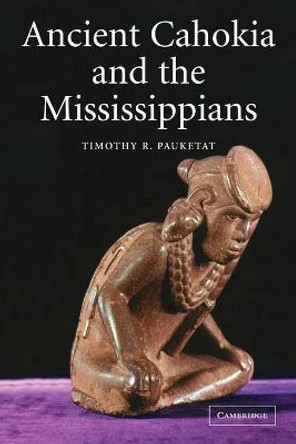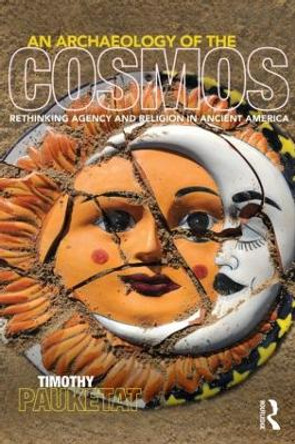Description
About the Author
Timothy R. Pauketat is Professor of Anthropology and Medieval Studies at the University of Illinois, Urbana-Champaign. He previous publications include The Archaeology of Ancient North America, The Oxford Handbook of North American Archaeology (as editor), and Cahokia: Ancient America's Great City on the Mississippi.
Reviews
Readers interested in pre-Columbian North America will be enlightened by this bold study. * Publishers Weekly *
A grand narrative of the thousand years in North America before Columbus. Blends Native accounts and cosmologies, and archaeology, and ethnohistory. A landmark for the deep history of our continent * Stephen H. Lekson, University of Colorado *
This remarkable work of synthesis demonstrates the power of archaeological research in bringing to light key social and ecological transformations in North America, between 800 and 1300 AD; the results are truly staggering and place the contemporaneous history of medieval Eurasia in an entirely new perspective. * David Wengrow, Institute of Archaeology, University College London *
Pauketat offers a complex and extraordinarily rich narrative detailing how Indigenous peoples of ancient America celebrated and ritualized water as a response to climate change. He entangles seemingly disparate peoples of ancient North and Central America by making climatic events and processes - such as the evapotranspiration cycle and the Medieval Warm Period - as key actors in the histories of the ancient Maya, Aztec, and Mississippian peoples. And by exploring these processes within the ontological dimensions of Indigenous experience, Pauketat masterfully demonstrates the intersections of spirituality and science, or what contemporary Indigenous peoples describe as traditional ecological knowledge. In doing so, he makes clear that the language of water rights and movements such as Mni Wichoni (Water is Life) have a much deeper past in which climate history has always been human history. * Patrick Bottiger, Kenyon College *
Finally, after decades of sidestepping by archaeologists, Pauketat has finally brought to light the question of interaction between Mesoamerica and the American Bottom city of Cahokia. Even at present, extensive research in archaeology is focused on the ties between Northwest Mexico and the American Southwest, while we have been waiting for someone to break the ice on the fundamental problem of Mesoamerica's possible connections beyond its northeastern frontier. Pauketat takes the reader on a personal journey as he delves into this perplexing inquiry with a sharp mind that arrives at fascinating insights and conclusions. * Peter F. Jimenez, author of The Mesoamerican World System, 200-1200 CE *
The book is a rich assemblage of sources and stories, giving a vivid impression of the ritual practices of 'Medieval America' and beyond and brings forth many thought-provoking ideas. * Antiquity *
The author and Oxford University Press should be commended for broadening our methodological approach to North American ancient cultures and history with this volume. * Minerva Magazine *
This volume will be valuable for archaeologists and their students involved in the study of the effects of climate change on the prehistory of North America. * Choice *
This accessible and well-written travelogue boldly frames the hypothesis that late medieval Indigenous eastern North Americans embraced rain-bringing wind gods, originally conceived in Mesoamerica, along with maize agriculture. * American Antiquity *
Enchanting... A bold provocation, couched in energetic prose and cast in a deeply informed sweep across ancient North America... Shake[s] us from long standing ideas about the cultural boundness of Pre-Columbian Indigenous polities and peoples. * Journal of Southern History *
Awards
Winner of Finalist, 2024 PROSE Award.
Book Information
ISBN 9780197645109
Author Timothy R. Pauketat
Format Hardback
Page Count 352
Imprint Oxford University Press Inc
Publisher Oxford University Press Inc
Weight(grams) 612g
Dimensions(mm) 164mm * 236mm * 30mm








